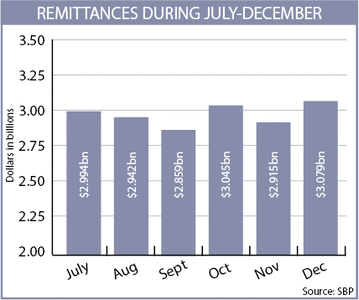There seems to be a consensus among the three leading political parties on resisting the democratic empowerment of local governments in different ways, notwithstanding the mounting problems of the people at the grassroots level.
The edifice of a bottom-up democratic state structure can only be built by erecting its grassroots foundation, reinforced by related robust socio-economic community development.
We are left with a faltering hybrid arrangement, creating a huge erosion of social and political cohesion with its fallout on national security.
Local governments need to be empowered financially, administratively and legislatively, and elections to these local bodies should precede provincial and national assembly polls. These would then likely influence the outcome of the provincial and national assembly polls and electorate mandate.
While provincial tax revenues have increased during 6MFY25, there is stubborn resistance to sharing revenues with local governments
While provincial tax revenues have increased during the six months of the current fiscal year in the provinces ruled by the PPP, PML-N and PTI, there is stubborn resistance to share revenues with local governments.
In nominal terms, provincial tax grew in FY24 by 19.2 per cent, almost three times the previous year. Indirect taxes led to this growth in the back of sales tax on services and other indirect taxes, like infrastructure development. However, according to State Bank data, the provincial tax revenue-to-GDP ratio decreased to 0.7pc in FY24, compared to 0.8pc in the previous year.
Moreover, for the last three years, the members of the Khyber Pakhtunkhwa local government have been staging street demonstrations for the release of the outstanding allocated funds for the years 2021-22 to 2024-25 under the Provincial Finance Commission Award, and for provision offices, funds, powers and other amenities, even though the Revenue Authority of the province collected Rs24.2 billion in first six months of FY25, recording a 45pc growth as compared to the same period last year.
Under the Local Government Act 2013, the government was bound to release 20pc of total development programme funds to local governments to implement the law.
The Khyber Pakhtunkhwa Local Council Association (KPLCA) on Jan 2 adjourned their members’ protest in Peshawar for 20 days after the provincial government once again promised to address their grievances with the earlier ones remaining unfulfilled; local body Minister Arshad Ayub Khan said KPLCA was promised the maximum possible development funding by the provincial government.
Punjab has avoided holding local government polls by resorting to prolonged piecemeal amendments to their governing laws. It was decided to hold the polls in 2025 after the provincial Chief Minister Maryam Nawaz approved the amended Local Government Act, subject to clearance by the provincial cabinet and assembly.
The delimitation of constituencies across Punjab for local government elections was scheduled to begin in January, with the process completed on March 31.
On the other hand, there has been an unusual rise in tax revenues. The Punjab Revenue Authority’s (PRA) collection rose by 16.16pc in December 2024 compared to last year.
From July to December of the current fiscal year, the PRA collected Rs118bn in tax revenue, reflecting a 10.35pc rise compared to the same period of the previous year.
Notable contributions included an 8pc increase in sales tax on services, 25pc growth in the Punjab Infrastructure Development Cess and a 76pc surge in the Punjab Workers Welfare Fund.
Having secured a majority in local government elections and under pressure from MQM-P and Jamat-i-Islami, the Sindh government has taken some steps in the right direction to empower local bodies. Still, they fall short of fiscal, administrative and legislative autonomy to manage their functions independently and effectively.
Sindh Revenue Board, which collects sales tax on services, says the upward trajectory in revenue continued during the first half of FY25, reaching Rs133.1bn against Rs108.6bn in the corresponding period of last fiscal year — an increase of 23pc. In December, the collection grew by 27pc year-on-year; the province could spare more funds for local bodies.
The functions of the provincial and local governments need to be clearly defined. What can be managed at the district level should be removed from the provincial jurisdiction.
Meanwhile, in its report titled Poverty Projections for Pakistan, the World Bank noted a 25.3pc poverty rate in 2024, up by seven percentage points from 2023, pushing an additional 13m people into poverty. Within the projected increase in poverty, poor households face disproportionately higher welfare losses and get pushed into poverty.
Then Pakistan’s economy grew by a mere 0.92pc in the first quarter of the current fiscal year, a steep fall from 2.3pc in the same period of last year.
A drop in the inflation rate does not relieve the common citizen. A decline in inflation figures just means a lower rate of increase in price levels; it does not mean a reduction in actual prices of items, explains Samiullah Tariq, head of research and development at the Pak Kuwait Investment Company.
“That is why the common person’s view is different from the point of view of economists,” notes Top Line Securities CEO Mohammad Sohail. The Sensitive Price Index-based inflation for the week ended Dec 27 increased by 0.8pc.
Published in Dawn, The Business and Finance Weekly, January 13th, 2025











































